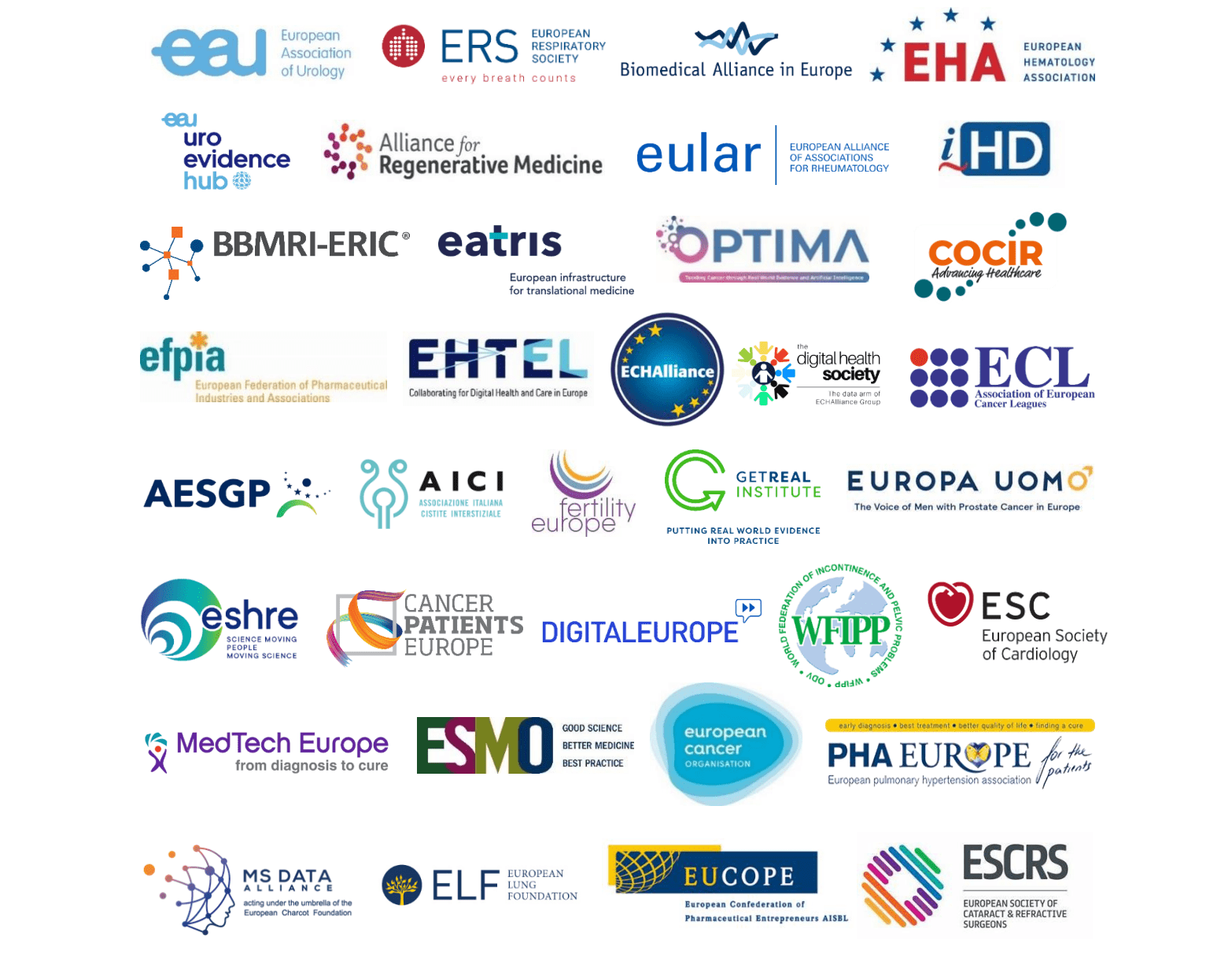26 February 2024 – The ECHAlliance, as part of a coalition of 35 large health stakeholder organisations representing patients, health professionals, researchers and industrial actors in the healthcare ecosystem at both European Union (EU) and Member State level, is expressing its shared concerns about the latest negotiations on the proposed Regulation on the European Health Data Space (EHDS). The EHDS is currently being negotiated at speed by EU institutions to get it ‘over the line’ before the end of this political term.
There is a real desire by the health stakeholder community for this proposed legislation to be a success. The potential benefits offered by a well-functioning EHDS would be significant. The EHDS is intended to make the functioning of European health systems more efficient, contribute to better health outcomes, and support public health and health research and innovation activities in the EU.
However, despite repeated calls by health stakeholder organisations from across the European healthcare ecosystem (on general recommendations for legislating the EHDS, on the challenges of implementing an effective opt-out / opt-in mechanism in the EHDS, and on raising alarm bells to address significant legislative shortcomings and uncertainties in the EHDS), the following ten fundamental issues have not been addressed satisfactorily in the legislative positions that form the bases for the interinstitutional negotiations (trilogues) between Council, the European Parliament and the European Commission.
- The EHDS must set forth clearer and more coherent definitions (e.g. on ‘electronic health data’, ‘data holder’, ‘electronic health record system’).
- The EHDS must clarify its interaction with other applicable legal frameworks (including GDPR, Data Governance Act, Data Act, Medical Devices Regulation).
- The EHDS must harmonise rules, reduce legal fragmentation and ensure that the regulation can be implemented consistently across the EU.
- The EHDS must specify the scope of electronic health data categories for secondary use.
- The EHDS should avoid any opt-in and only incorporate an opt-out mechanism as long as it does not lead to inconsistent implementation, increased health data disparities and excessive administrative burdens. The relevant legal bases under the GDPR should be leveraged and applied in a harmonised way across Member States.
- The EHDS should safeguard and incentivise health research and innovation activities that are performed in line with the existing regulatory frameworks.
- The EHDS should leverage existing health data infrastructures, set up by health institutions and stakeholders, to allow continuity and build on existing expertise.
- The EHDS should avoid excessive data localisation and international health data transfer restrictions that go beyond the requirements of the GDPR’s framework.
- The EHDS should involve all relevant health stakeholders from the outset of the implementation process and include them in its governance at both EU and Member State level.
- The EHDS must provide adequate resources and incentives to facilitate its successful implementation. It should be accompanied by policies promoting digital health skills and tools for health professionals, patients and citizens.
The European healthcare ecosystem is concerned that the draft text of the EHDS does not provide the necessary degree of legal certainty and consistency with the existing regulatory frameworks. Recently incorporated or amended key provisions should be carefully considered to avoid unintended negative consequences. A robust health data governance framework is essential for ensuring privacy and security to build and maintain public trust in the EHDS. Therefore, we call on the EU institutions to leverage the expertise of the healthcare ecosystem and take the necessary time to create the EHDS that makes the most of the potential of digital health to provide high-quality healthcare for all in the EU.

